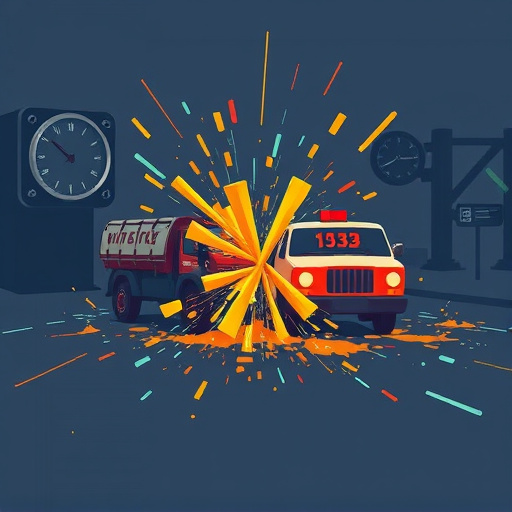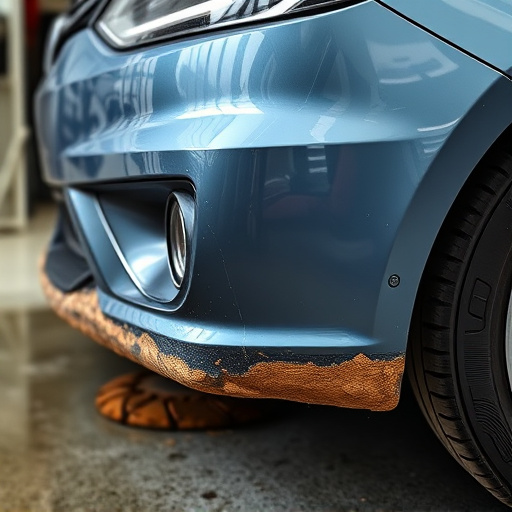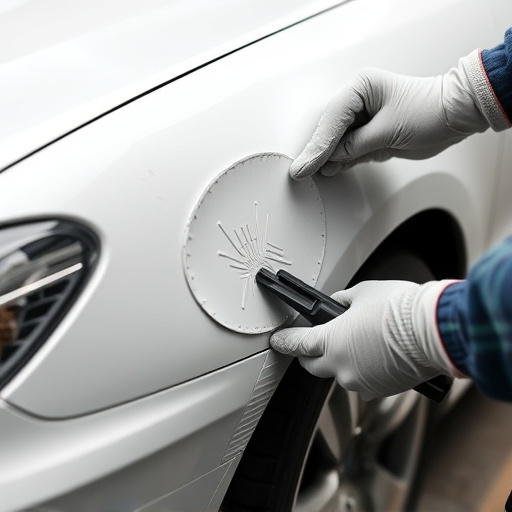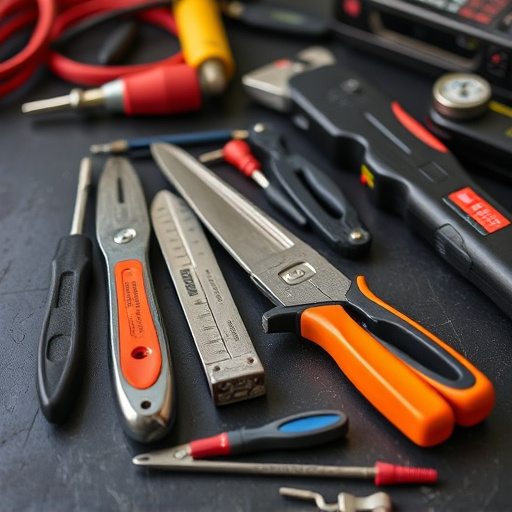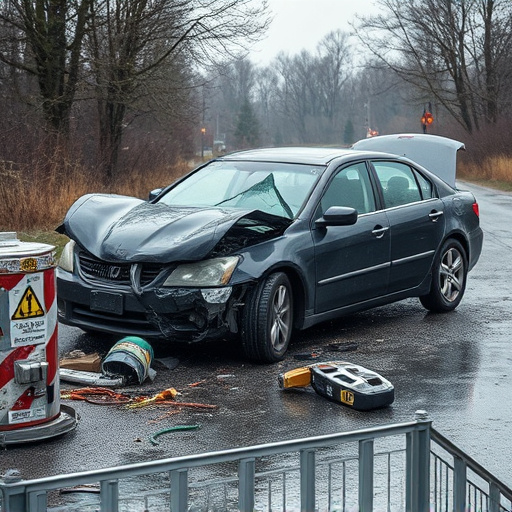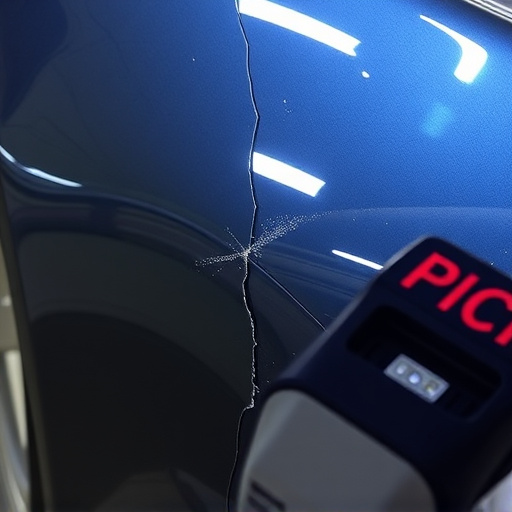Post-repair road testing is a mandatory and critical process for auto collision centers to ensure vehicle safety, legal compliance, and quality service. These tests verify handling, braking, lighting, and system functionality through controlled drives, addressing potential issues before vehicles are released to customers. Non-compliance can lead to severe legal consequences, fines, and liability for shops and customers alike.
Post-repair road testing is an essential step in ensuring vehicle safety and legal compliance. With stringent regulations in place, these rigorous tests verify a repaired vehicle’s performance and reliability on the road. This article explores the critical role of post-repair road testing, delving into industry standards, legal obligations, and the procedures that safeguard drivers and roads. By understanding these practices, operators can navigate regulatory requirements effectively.
- Understanding Post-Repair Road Testing Standards
- Legal Implications of Skipping Road Tests
- Ensuring Safety and Compliance Through Testing Procedures
Understanding Post-Repair Road Testing Standards
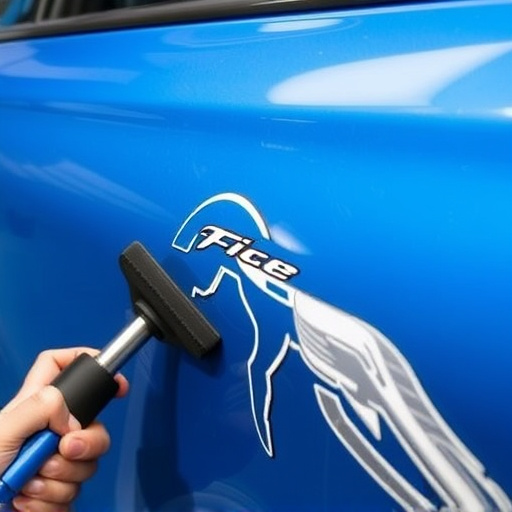
Post-repair road testing is a critical component of ensuring legal compliance for any auto collision center or car collision repair facility. These tests are designed to verify that vehicles, after undergoing repairs like dent repair, meet safety and performance standards. The process involves taking the repaired vehicle on a series of controlled drives to assess its handling, braking, and overall drivability. This is not just about ensuring the physical fixes are up to par; it also includes confirming that all systems, from lighting to safety features, function as intended.
Compliance with post-repair road testing standards is mandated by various regulations, depending on the region and type of vehicle. For instance, many jurisdictions have specific requirements for vehicle re-inspection after certain types of repairs, especially in cases involving structural integrity or safety-critical systems. Auto collision centers must be prepared to conduct these tests meticulously, using state-of-the-art equipment and following established protocols. This not only guarantees the satisfaction and safety of customers but also acts as a vital defense against legal issues related to substandard repairs.
Legal Implications of Skipping Road Tests
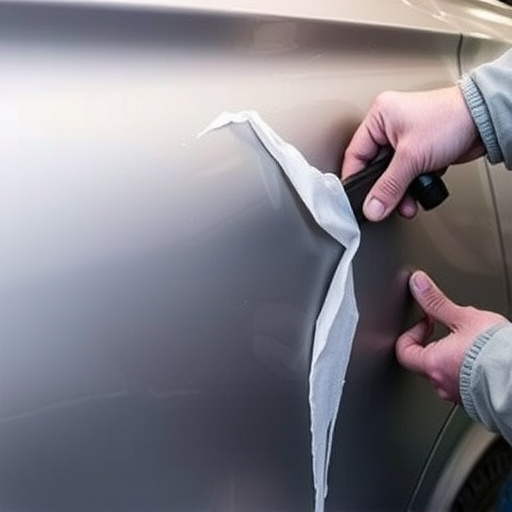
Skipping post-repair road testing can have significant legal implications for automotive body shops and their customers alike. In many jurisdictions, car bodywork repairs that involve certain systems or components—like brakes, lights, or safety features—require a comprehensive road test to ensure compliance with local regulations. These tests go beyond basic checks in a shop setting; they verify the functionality and safety of vehicles on actual roads, following specific protocols.
Failure to conduct these post-repair road tests not only risks fines and penalties for auto body services but can also expose them to liability if a repaired vehicle fails to meet safety standards or causes an accident after leaving the shop. Customers who purchase repairs without this critical step may find themselves in legal trouble, especially if any issues arise within the warranty period or during subsequent ownership. Thus, adhering to post-repair road testing protocols is not just a matter of ensuring quality service but also of protecting against potential legal repercussions.
Ensuring Safety and Compliance Through Testing Procedures
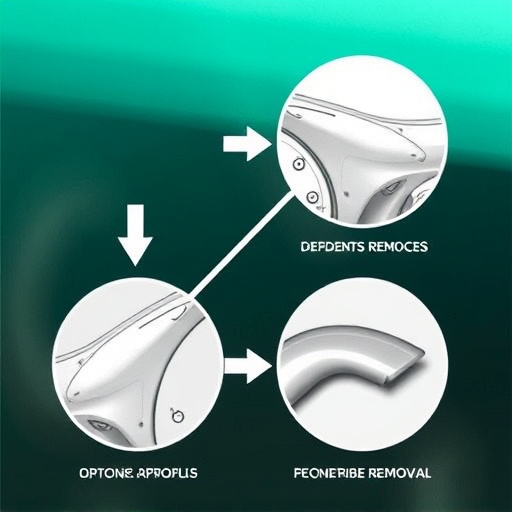
Post-repair road testing is a crucial step in ensuring safety and legal compliance for any vehicle, be it a modern model or a classic car undergoing restoration. After a car body repair or collision repair, it’s imperative to verify that all components function as intended and meet the necessary safety standards. This process involves taking the vehicle on a series of controlled road tests designed to replicate various driving conditions. During these tests, mechanics and technicians assess critical factors like brake performance, steering accuracy, tire pressure, lighting systems, and emissions output. Any discrepancies discovered during this phase are addressed promptly to bring the vehicle up to par with regulatory requirements.
For collision repair shops handling complex cases or classic car restoration projects, meticulous post-repair road testing becomes even more vital. It not only safeguards against potential legal issues but also ensures that the repaired vehicle is as safe and reliable on the road as it was before the incident. This attention to detail helps maintain the integrity of the vehicle, whether it’s a modern sedan or a vintage classic, and instills confidence in both owners and regulators alike.
Post-repair road testing is not just a safety measure but also a legal requirement. By adhering to established standards and implementing thorough testing procedures, businesses ensure compliance with regulations and protect themselves from potential legal repercussions. Skipping these tests can lead to serious consequences, emphasizing the importance of integrating post-repair road testing into every repair process for the sake of both safety and legality.

